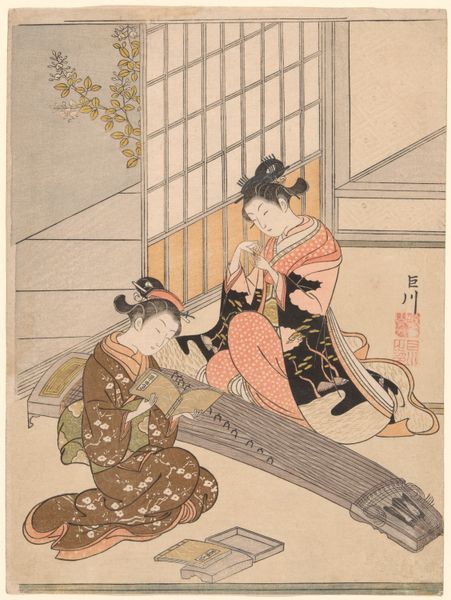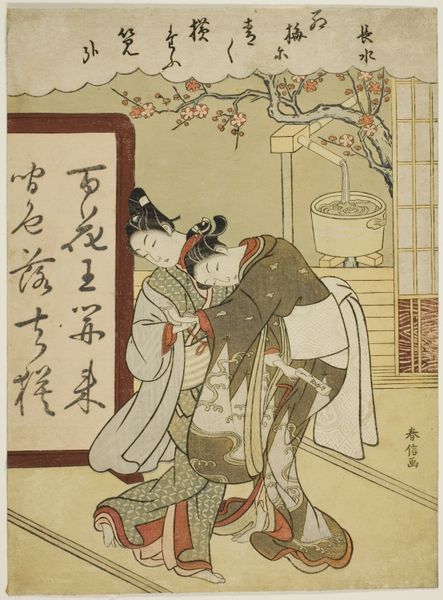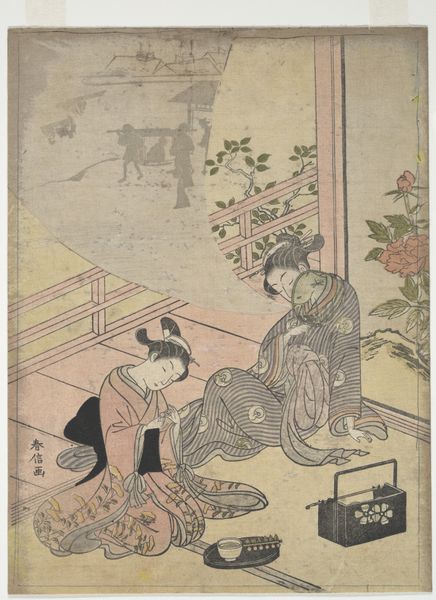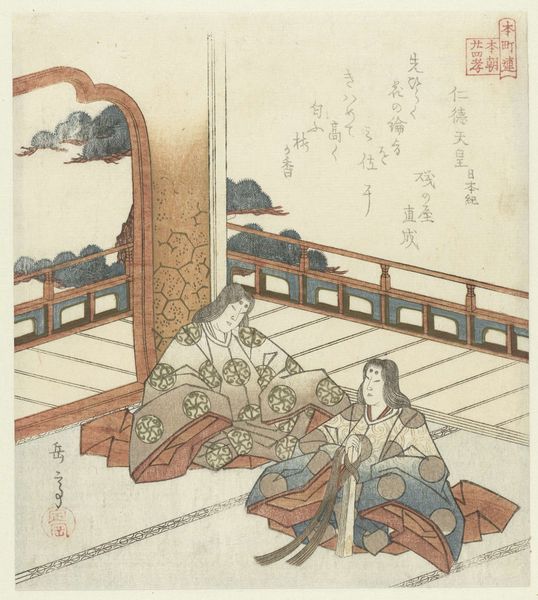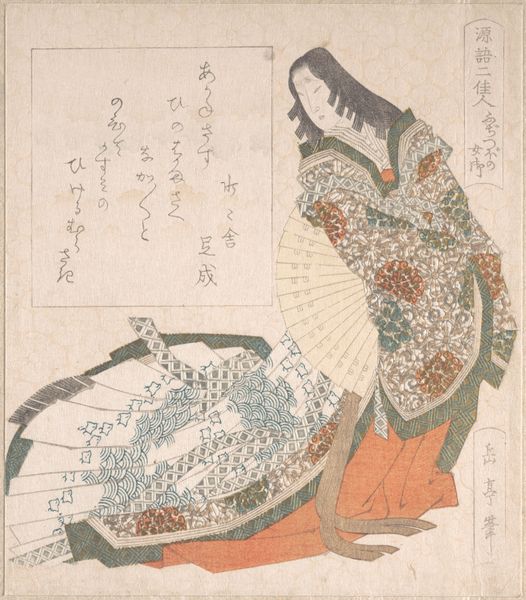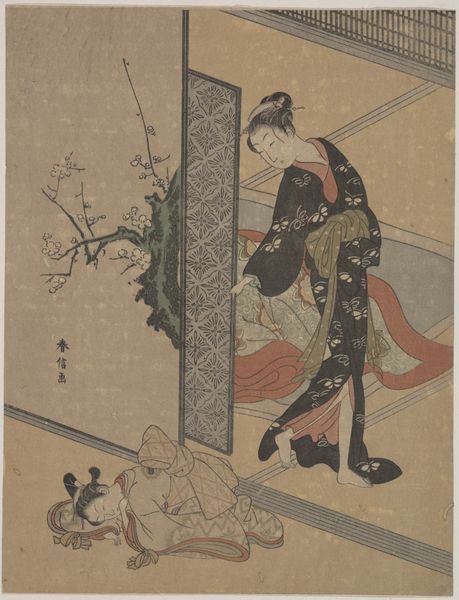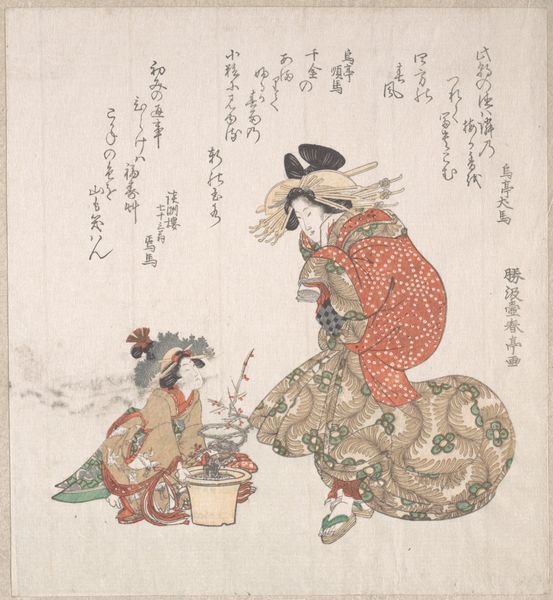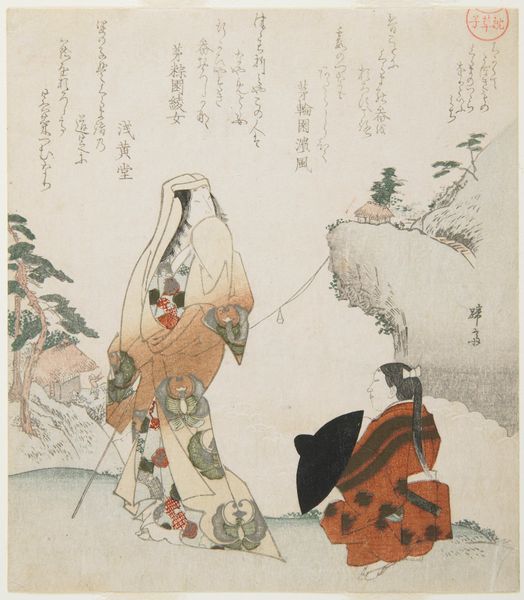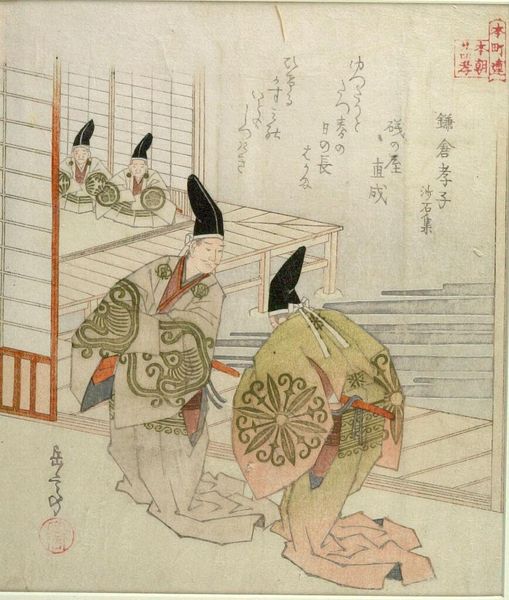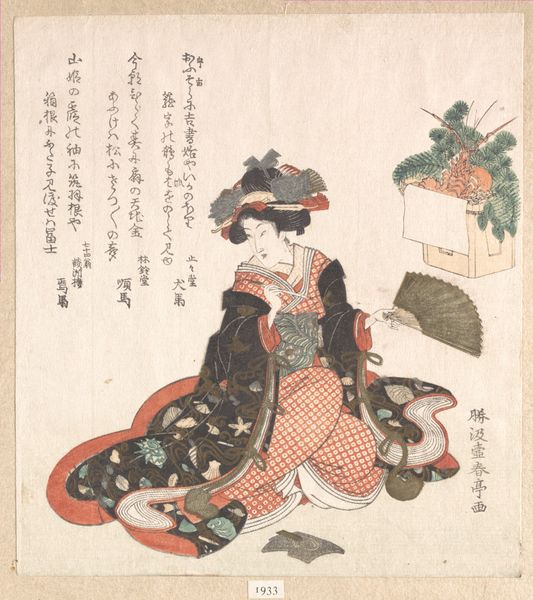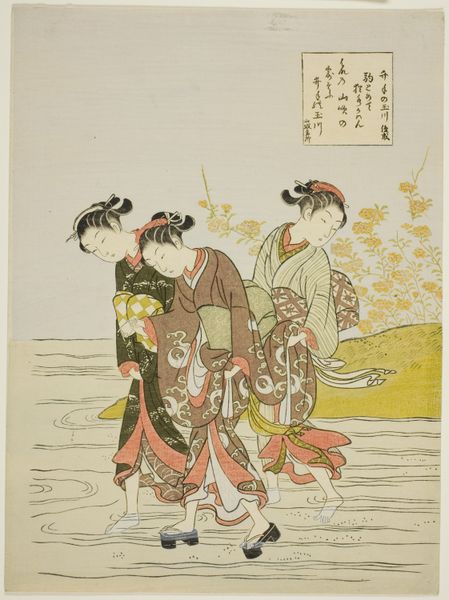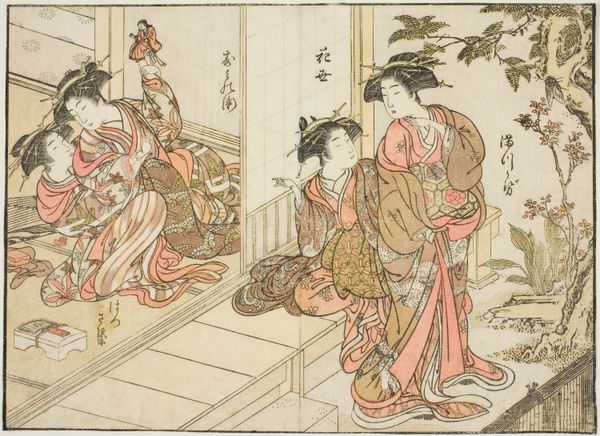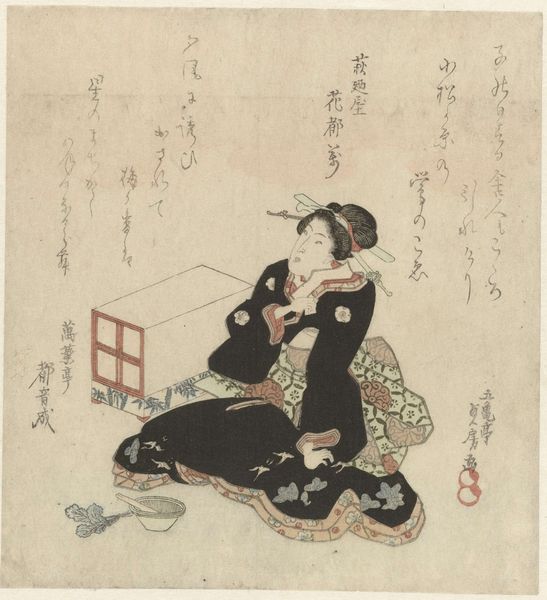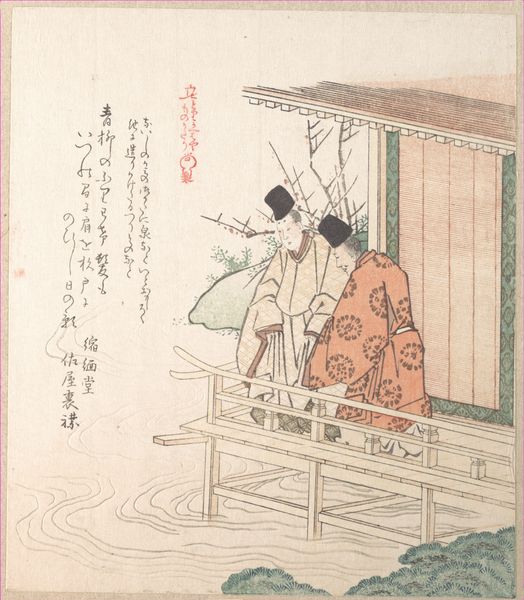
The Filial Son at Kamakura, From the Book: Sasekishu 1825 - 1845
0:00
0:00
print, paper, woodblock-print
#
narrative-art
# print
#
asian-art
#
ukiyo-e
#
japan
#
paper
#
woodblock-print
Dimensions: 8 1/4 x 7 3/8 in. (21 x 18.7 cm)
Copyright: Public Domain
Editor: This is “The Filial Son at Kamakura, From the Book: Sasekishu” by Yashima Gakutei, dating from around 1825-1845. It’s a woodblock print on paper. I’m immediately struck by how poised the figures are, despite what seems like an intense moment of bowing. What’s your take on this? Curator: Ah, yes. It speaks to a core principle of beauty in Japanese art: controlled emotion. Look at the precise lines, the muted colors, almost as if the scene is whispered to us. What do you make of the setting? Does it seem to fit our ideas of 'intense?' Editor: It doesn't exactly scream drama. I guess the setting… suggests respectability, formality? Those figures in the background seem pretty calm, too. Curator: Exactly! Gakutei sets the scene to evoke "refinement", doesn't he? How does the poetry, or calligraphy, add to that experience for you? Do the two seem unrelated, or intertwined? Editor: I'm not fluent, unfortunately, but the text seems visually balanced. Like another layer of pattern alongside the clothing. So... intertwined, perhaps? Curator: Absolutely! The calligraphy is integrated, not just descriptive. The artist almost asks us to *feel* the meaning. That is how Japanese aesthetics often surprise, by shifting focus onto the ephemeral… almost a sense of something slipping just out of reach. Editor: I never considered that before! It really highlights how different cultural assumptions shape art. Curator: Precisely! It's a lesson, I find, in slowing down, embracing what isn't immediately obvious, and enjoying, fully, the depth of our collective unconscious.
Comments
No comments
Be the first to comment and join the conversation on the ultimate creative platform.
